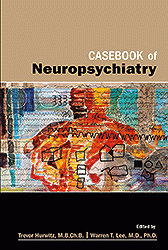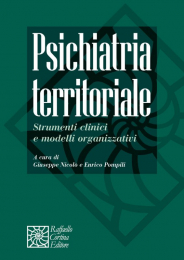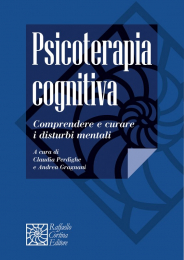Non ci sono recensioni
Casebook of Neuropsychiatry provides a fascinating tour of the critical subspecialty of neuropsychiatry, which combines neurology and psychiatry to address organic disturbances in the central nervous system that give rise to mental diseases. The book is comprised of 11 chapters, with subjects ranging from apathy to hyperkinetic states, and from depression to psychobehavioral disinhibition. The chapters are further divided into 38 cases, each of which takes the reader from clinical presentation through differential diagnosis and diagnostic workup, to current treatment options. Although the book is written in an engaging, narrative style, it has a strong, thoroughly up-to-date scientific foundation. Each case is placed in the appropriate neurobiological context, thus enhancing both the reader's clinical skills and his or her neuropsychiatric knowledge.
The book’s many beneficial features include:
- Complete coverage of the neurological diseases and treatments, including detailed material on the behavioral affiliations of the frontal, temporal and parietal cortices; limbic system; and basal ganglia;
- Charts, illustrations, and imaging, which allow the reader access to all the diagnostic and medical historical documentation necessary to fully understand each case;
- “Key Clinical Points” provided at the end of each chapter, which focus the reader's attention on the most important facts and strategies; and
- Suggested readings, which afford readers the opportunity to deepen and enhance their knowledge and understanding.
By grounding the field of neuropsychiatry in real-life clinical problems, the editors have created an engaging and practical volume that allows psychiatrists, neurologists, residents, and others to update their knowledge of current neuropsychiatric thinking, sharpen their diagnostic skills, and fully appreciate the nuance and substance of this rapidly growing field.
Contents
Introduction. Psychobehavioral disinhibition. Dopamine excess in Parkinson’s disease. Mania associated with brain injury. Neuropsychiatric manifestations of paraneoplastic syndrome. Aggression and brain injury. Disinhibition mistaken for mania. Apathy. Apathy in frontal lobe injury. Depression. Major depression and panic disorder following epilepsy surgery. Poststroke depression. Psychiatric aspects of multiple sclerosis. Anxiety. Temporal lobe epilepsy presenting as panic attacks. Secondary obsessive-compulsive disorder associated with pallidal lesions. Psychosis. Dementia with Lewy bodies. Temporal lobe epilepsy psychosis and depression. Frontal lobe epilepsy and its neuropsychiatric manifestations. Atypical psychosis in mitochondrial disease. Hyperkinetic states. Tourette’s disorder in adults. Psychosis associated with Huntington’s disease. Tardive dyskinesia. Somatoform and somatoform-like disorders. Multiple physical symptoms that remain undiagnosed. Complex illness after a fall. Lyme disease. Epilepsia partialis and continua and pseudoseizures. Cogniform disorder. Alterations in consciousness. Hashimoto’s encephalopathy. Dissociative disorders. Anti-NMDA receptor encephalitis. Neuroleptic malignant syndrome. Neuropsychiatric systemic lupus erythromatosus. Memory failure. Amnesia associated with epilepsy. Memory loss associated with herpes simplex encephalitis. Intellectual failure. Frontotemporal dementia. Dementia syndrome of depression. Psychosis and cognitive impairment in an adolescent. Cognitive-intellectual dysfunction in multiple sclerosis. Postconcussion syndrome and depression after mild traumatic brain injury. Tuberous sclerosis mistaken for attention-deficit/hyperactivity disorder. Focal neurobehavioral syndromes. Balint syndrome. Left hemispatial neglect. Index.




